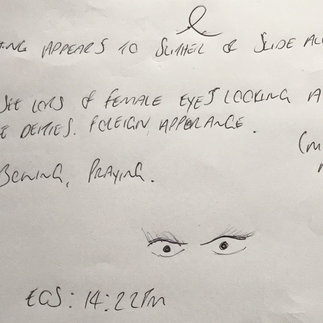
History
Arthur Rimbaud was a French poet, sometimes referred to as the enfant terrible of French poetry, known for his "transgressive and surreal themes, and his influence on modern literature and arts, prefiguring surrealism"[1]. He experimented with the systematic derangement of the senses, arguing "“A poet makes himself a visionary through a long, boundless, and systematized disorganization [sometimes translated as “derangement”] of all the senses. All forms of love, of suffering, of madness; he searches himself, he exhausts within himself all poisons, and preserves their quintessences. " He was a writing prodigy at a very early age. Most of his work was completed in less than five years and after assembling his last major work, Illuminations he retired from writing.
Rimbaud was "known to have been a libertine and a restless soul, having engaged in a hectic, at-times-violent romantic relationship with fellow poet Paul Verlaine, which lasted nearly two years. After his retirement, he traveled extensively on three continents as a merchant and explorer, until his death from cancer just after his thirty-seventh birthday. As a poet, Rimbaud is well known for his contributions to symbolism and, among other works, for A Season in Hell, a precursor to modernist literature".[2]
Stéphane Mallarmé, in a text about Rimbaud from 1896 (after his death), described him as a "meteor, lit by no other reason than his presence, arising alone then vanishing" who had managed to "surgically remove poetry from himself while still alive". Albert Camus, in L'homme révolté, although praising Rimbaud's literary works as "a poet of revolt, and the greatest"), wrote a scathing account of his later life, claiming that there "is nothing to admire, nothing noble or even genuinely adventurous, in a man who committed a "spiritual suicide", became a "bourgeois traficker" and consented to the materialistic order of things." [3]
However, it is known that apart from traveling by foot, taking up odd jobs and engaging in old arms dealing, he befriended the Governor of Harar, Ethiopia and established his own business. "He was, in fact, a pioneer in the business, the first European to oversee the export of the celebrated coffee of Harar from the country where coffee was born. He was only the third European ever to set foot in the city, and the first to do business there". [4] People there described him as "an intelligent man, quiet, sarcastic, secretive about his prior life, living with simplicity, taking care of his business with accuracy, honesty and firmness."
In his last year he developed cancer of the bone and had a leg amputated. He attempted to return to Africa but fell ill in Marseille where he remained sick until his final passing.
Eternity
It has been found again. What ? - Eternity. It is the sea fled away With the sun. Sentinel soul, Let us whisper the confession Of the night full of nothingness And the day on fire. From human approbation, From common urges You diverge here And fly off as you may. Since from you alone, Satiny embers, Duty breathes Without anyone saying : at last. Here is no hope, No orietur. Knowledge and fortitude, Torture is certain. It has been found again. What ? - Eternity. It is the sea fled away With the sun.
The Remote Viewing
These RV sessions were completed by Thion and Jemma Warner. First, Thion participated in an ERV session, wherein I chose to throw out a subject target with initials AR while already engaged with the signal line inside another target, so this casual approach would be considered non-conventional remote viewing (or whatever other term you'd wish to use). This session was followed by Jemma's paper session a few months later.
Thion picks up on someone with feminine-like energy, which ends up being more of an 'angelic' being, while the "AR" subject is like an earring hanging from the larger being - a smaller aspect having experienced a life on Earth. This aspect was described as fragile and was attempting to get over the physical life led on Earth, while the larger aspect noted that one need not judge the preoccupations of the ego - this earth life was just an experience and the second part of the life which involved some family dynamics did not really warrant revisiting.
The audio of the session is available here.


Jemma's session goes on to portray a strange extinct face and someone who is on guard and protective. There is the image of feminine eyes looking back, and there is also bowing and praying. While we don't know who these are, it could be either related to this feminine aspect, or his sister who cared for him in the hospital, convinced him to convert back to Christiantity, and the writing on the modest gravestone where they are buried together reads "pray for him". Her session also shows an injured and depleted person and someone purging and regenerating while something is just out of reach.

Here are the paper sessions below:
Sources:
Ben-Dror, Avishai (2014). "Arthur Rimbaud in Harär: Images, Reality, Memory". Northeast African Studies. East Lansing, Michigan: Michigan State University Press. 14 (2): 159–182. doi:10.14321/nortafristud.14.2.0159. S2CID143890326













Comments